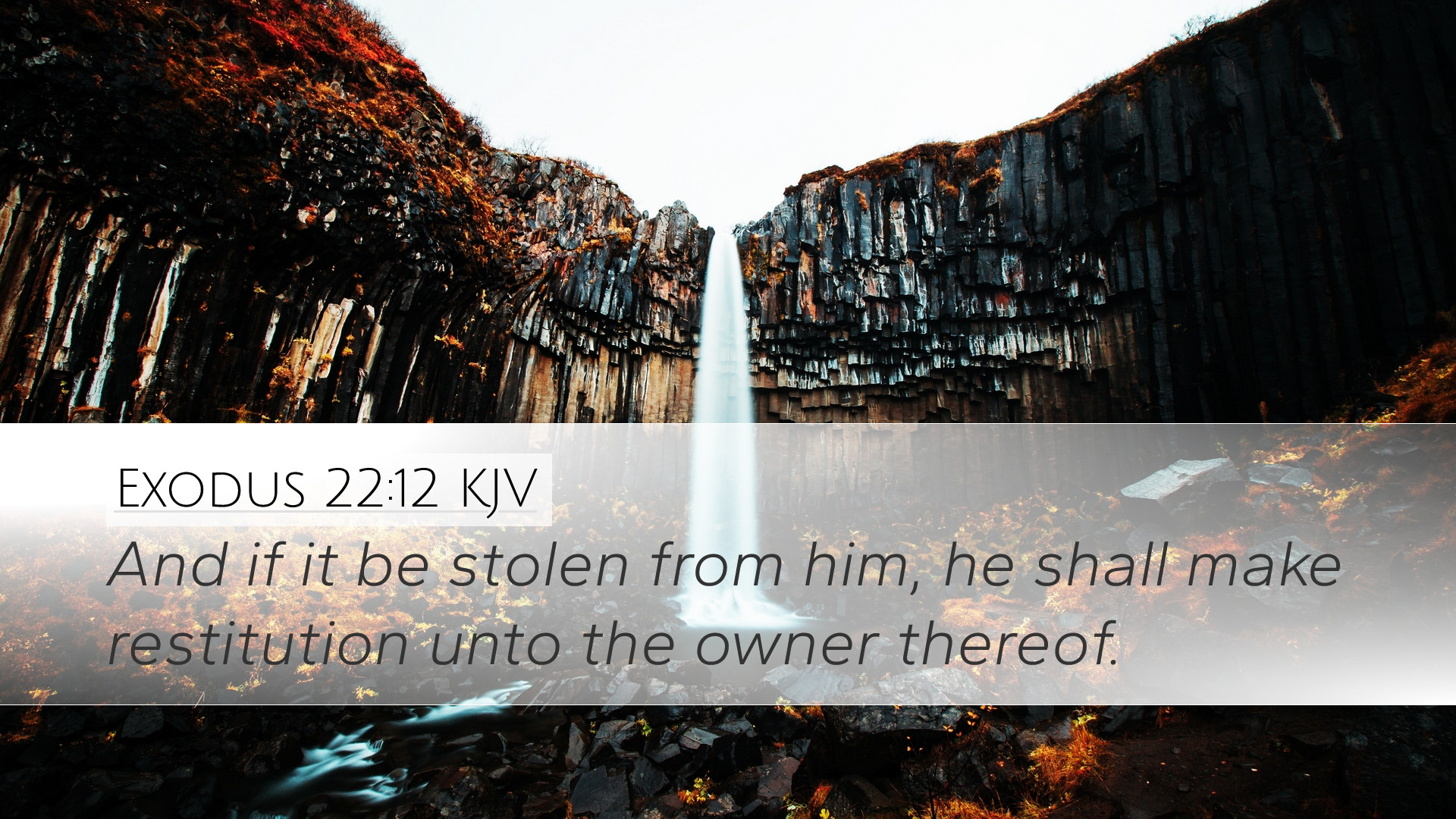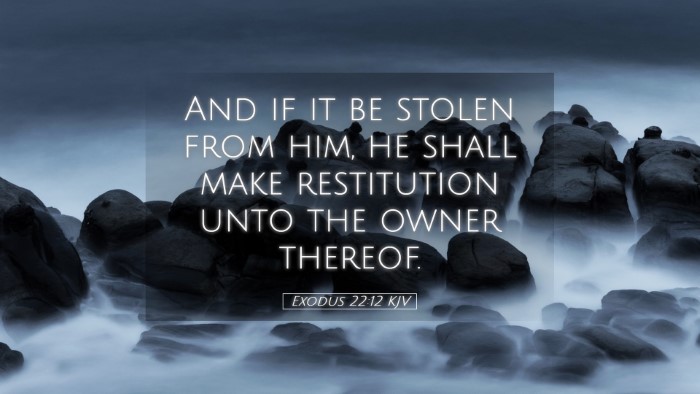Commentary on Exodus 22:12
Verse: Exodus 22:12 - "But if it be stolen from him, he shall make restitution unto the owner thereof."
Introduction
This verse plays a crucial role in the fine tapestry of biblical law, specifically regarding the responsibilities of individuals towards property and restitution in the community. It addresses a significant social principle rooted in the character of God and His expectations of justice among His people.
Contextual Overview
Exodus 22 outlines various laws that govern the conduct of the Israelites, focusing particularly on issues of theft, restitution, and personal responsibility. These laws reflect God's concern for justice and the well-being of the community.
Historical Background
The laws given to the Israelites were revolutionary for their time, emphasizing personal responsibility and public accountability. They sought to create a society where the rule of law mimicked the divine order, instilling a sense of security and trust among community members.
Commentary Insights
Matthew Henry's Perspective
Matthew Henry emphasizes that this law demonstrates God's care for justice. He notes that the thief bears the primary responsibility; however, it also highlights the owner's duty to secure their property. Henry points out that the ramifications of theft extend beyond the financial to encompass the relational aspects of trust within the community.
Albert Barnes' Interpretation
Albert Barnes underlines the practical functionality of the law. He asserts that this verse provides guidelines on restitution and reinforces the concept of personal accountability. The principle of making restitution not only serves to compensate the victim but also serves as a deterrent against theft.
Adam Clarke's Commentary
Adam Clarke draws attention to the wisdom embedded in this law. He observes that it reflects the heart of God's justice, as He desires that every loss suffered by an individual be addressed justly. Clarke highlights the idea that restitution is not merely a transactional concept but a moral obligation that restores harmony in relationships.
Theological Implications
The principle of restitution found in Exodus 22:12 exposes deeper theological themes regarding justice, sin, and redemption.
God's Justice
God’s laws signify His commitment to justice. The act of restitution mirrors God’s righteousness, offering a framework for how believers should conduct themselves in a community honed by God's moral standards. This reflects that God values justice over mere punishment.
The Concept of Restitution
Restitution in biblical terms is not simply monetary compensation, but a restoration of right relationship. This concept resonates with New Testament teachings where reconciliation and restoration are core to the message of Christ. Therefore, restitution transcends material exchanges; it speaks to the restoration of trust and relationship within the community.
Practical Applications
For pastors, students, and theologians, applying the insights from Exodus 22:12 may involve various facets:
- Preaching on Justice: Pastors can use this scripture to address issues of justice and personal responsibility in their sermons.
- Teaching Restitution: Educators might explore the implications of restitution within relationships in their teachings, fostering discourse on personal accountability.
- Community Engagement: Engaging in community service or restitution initiatives can align congregational missions with the biblical call for justice and restoration.
Conclusion
Exodus 22:12 emphasizes the vital nature of accountability and restitution in society. The insights gleaned from respected commentaries highlight the overarching principles of justice and personal responsibility, echoing through both the Old and New Testaments. Understanding these principles can deepen the faith of believers, compelling them to live justly and restore relationships within their communities.


